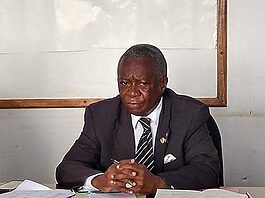
Blood is thicker than water: The weight of conscience and justice
By Burnett Munthali
In many cultures and beliefs, the saying “blood is thicker than water” carries a profound meaning beyond familial ties—it speaks to the inherent bond and responsibility individuals have towards each other, especially in matters of life and death. This principle underscores the gravity of actions and the inevitable consequences that follow, particularly in the face of violence and injustice.
Haunted by Spirits - Across societies, there exists a belief that the spirits of those wrongfully killed do not rest in peace; instead, they haunt their perpetrators. This notion reflects a deep-seated belief in the cosmic balance of justice, where actions have spiritual repercussions beyond the physical realm. It serves as a deterrent, warning individuals against the grave consequences of taking another person's life.
The Power of Prayer and Justice – In some communities, such as the Catholic Church, prayers offered after a mysterious death carry a significant weight. It is believed that through collective prayer and spiritual intervention, the truth behind the untimely demise will be revealed. This belief rests on the conviction that no wrongdoing can remain hidden forever—that eventually, the perpetrator will be compelled to confess or be exposed.

Time Unveils Truth – Despite attempts to conceal or evade accountability, the passage of time often acts as a relentless revealer of truths. In cases of murder or wrongful death, it’s commonly believed that secrets cannot be kept indefinitely. The guilt and burden carried by the perpetrator inevitably manifest, either through their own conscience or external circumstances that unravel the truth.
The Unveiling of Secrets – Ultimately, the adage “blood is thicker than water” encapsulates a universal truth—that the consequences of taking a life extend far beyond the immediate act. It underscores the interconnectedness of humanity and the moral imperative to uphold justice and accountability. Whether through spiritual beliefs, communal practices, or the passage of time, the truth behind violent acts is believed to surface, bringing closure and justice to those affected.
In Conclusion, in societies worldwide, the belief that perpetrators of violence will ultimately face justice—whether in this world or the next—remains a powerful force for accountability. The interconnectedness of actions and consequences underscores the profound responsibility individuals bear towards one another. As communities grapple with the aftermath of tragedy, the conviction remains steadfast: justice will prevail, and the truth will inevitably come to light.






